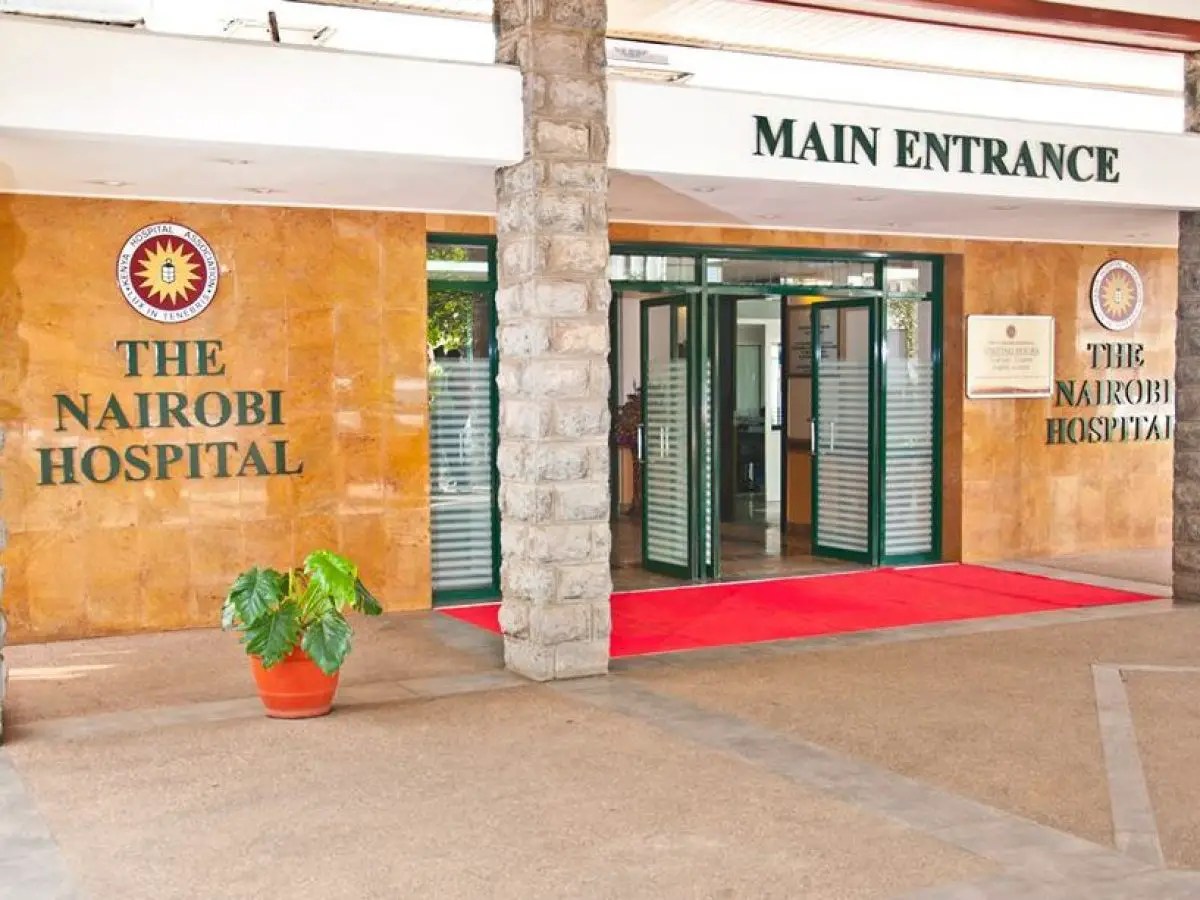Investigations
How The Nairobi Hospital Has Gradually Become a Toxic Employer To Its Healthcare Cadres Excluding the Nurses

The Nairobi Hospital has been among the leading healthcare service providers in the East African region since its inception in the 1950s. It has a combination of highly skilled medical specialists and modern medical and non-medical technology to undertake a wide range of routine and complex investigations and procedures, including Open Heart Surgery, Kidney Transplants, Trauma Care, Orthopaedic Surgery, Neurosurgery, Laparoscopic Surgery, and Cancer Therapy among others.
However, laboratory technicians and other cadres have expressed concern about the facility’s management and workingenvironment in the recent past.
Today, Kenya is experiencing a steady increase in clinical careers. Nevertheless, healthcare professionals are facing significant challenges due to the demanding nature of the industry. The Nairobi Hospital is one of the facilities where healthcare professionals perform a demanding line of duty while dealing with obstacles that make navigating the sector difficult. Most, if not all, feel frustrated for various reasons after working for several years. The period after the pandemic has been the most challenging, and some consider quitting for their sanity.
Toxic working environment
According to several insiders, the hospital‘s environment has become more of a law enforcement arena. Most supervisors and managers are harsh and rude and appear to prove a point. The staff can be fired months into their jobs for lack of a clear improvement plan. The supervisors bully members of their teams, which has caused severe mental and physical health decline. Put plainly, the working environment is characterized by managers shouting at the staff for errors in the presence ofcolleagues and patients. Also, some healthcare professionalshave complained about silent treatment from management in times of need.
The boss has the final say, and there’s no debate. No opinion is listened to, especially from the laboratory technician and other cadres. Senior staff in the facility for several years have resigned or taken early retirement because of unnecessary pressure and being bossed around. Similarly, healthcare professionals are not allowed to exchange shifts in case of an emergency or social gatherings. If a staff risk covering a shift fora colleague, they are immediately subjected to a two weeks continuous shift without rest as a form of punishment. As if that is not enough, some cadres have found themselves in the facility’s union without consent and do not have a way out.
In a demand letter addressed to the hospital CEO on 11thNovember 2022 by disgruntled professionals across all clinical and non-clinical departments, the staff cited the need for urgent salary review as that was the subsequent time the issue was being raised. Moreover, the facility has taken a divide-and-rule strategy, slowly eroding its traditions. The letter further noted that nurses receive better treatment, payment, and working environment than other clinical and non-clinical staff. In response, the facility’s management, through a virtual meeting, declined to offer any solutions to their concerns.
Demanding work schedules
The hospital staff is required to work long hours, which is one of the major causes of burnout. The work schedules are demanding and challenging. Laboratory technicians and other cadres face surge after surge of patients who are desperately ill and need their attention. Moreover, laboratory technicians must handle numerous samples from patients streaming into the main facility and its outpatient centres. The hospital expected the employees to work at least 45 hours per week which many believe is too much. Shifts vary depending on different factors such as demand, personal preference, and location.
Although the healthcare professionals undergo a contract signing process during orientation where the working hours are stipulated as 45 hours per week, on average, the recommended working hours for a full-time healthcare professional should be 36 to 40 hours. A lab technician argues that the off day onweekends is insufficient for rest and attending to family duties.For instance, a mother or single parent who has to work the entire week to meet the 45 hours threshold has challenges with the rest day because they have to release their house manager or nanny, which means they don’t get to rest. Therefore, they have no work-life balance.
Unfair allocation of duties and transfers
Similarly, duties at the facility and the outpatient centres are allocated unfairly. Some staffs operate in areas with the most difficult patients or the worst shifts. Bullying supervisors may target particular individuals and assign them bedbound patients,which leads to physical struggles. Favouritism is common,where some professionals only handle mobile patients. Other hospital staffs feel there is unfair scheduling where specificindividuals have to deal with excessive night shifts. During the day, it is hard for anyone to take breaks. Lunch breaks are no longer valued, and the staff is forced to split their breaks and use their spare time to handle the vast workloads assigned to them. The breaks are important for rest, reducing accumulated acute fatigue, and restoring energy.
In case of errors, the managers can punish healthcare professionals by immediately transferring them to different stations, far away from where they live, without any notice to help them prepare for relocation. The salaries are also insufficient to match the work done at the facility and outpatient centres. The hospital’s management is aware of the number of patients served by the carers and the multiple complaints about the issue of salaries. However, there is little effort seen to resolve the problem. Many staff members are demoralized and feel undervalued, affecting their care delivery.
Toxic clients
The hospital has a specific clientele, most of which are difficult to deal with, especially due to their demand for special treatment. According to an insider, some toxic clients are BOG members who feel extremely entitled, inappreciative, and discourteous to the staff and believe they are beyond reproach. If they do not get served immediately after they arrive, the lab technicians and other cadres may find it difficult to explain the reasons to their managers. Once patients report an issue, the supervisors assume that the health professionals attending to them are in the wrong.
Notably, such issues have become prominent and are a leading cause of depression and anxiety, which could eventually lead to Post Traumatic Stress Disorder (PTSD) for laboratorytechnicians, among other cadres. Healthcare professionals are responsible for putting their patients first with compassion and care, but not to the detriment of their health. Most people quoteresilience and encourage healthcare professionals to cope with adversity. Nonetheless, it is vital to remember that this category of professionals consists of humans with their frailties and fears. They cannot always present everything demanded of them as might be expected by the facility. With the unfair treatment, the management should understand that the staffs are humans taking care of other humans’ needs. It is sad and hurtful to be abused by the management or patients needing care.
We’ve attached the letter to the CEO below.
Kenya Insights allows guest blogging, if you want to be published on Kenya’s most authoritative and accurate blog, have an expose, news TIPS, story angles, human interest stories, drop us an email on [email protected] or via Telegram
-

 Grapevine6 days ago
Grapevine6 days agoAlleged Male Lover Claims His Life Is in Danger, Leaks Screenshots and Private Videos Linking SportPesa CEO Ronald Karauri
-

 Lifestyle1 week ago
Lifestyle1 week agoThe General’s Fall: From Barracks To Bankruptcy As Illness Ravages Karangi’s Memory And Empire
-

 Grapevine2 days ago
Grapevine2 days agoRussian Man’s Secret Sex Recordings Ignite Fury as Questions Mount Over Consent and Easy Pick-Ups in Nairobi
-

 Investigations2 weeks ago
Investigations2 weeks agoEpstein Files: Sultan bin Sulayem Bragged on His Closeness to President Uhuru Then His Firm DP World Controversially Won Port Construction in Kenya, Tanzania
-

 News2 weeks ago
News2 weeks agoAUDIT EXPOSES INEQUALITY IN STAREHE SCHOOLS: PARENTS BLED DRY AS FEES HIT Sh300,000 AGAINST Sh67,244 CAP
-

 Business2 weeks ago
Business2 weeks agoKRA Can Now Tax Unexplained Bank Deposits
-

 Investigations1 week ago
Investigations1 week agoEpstein’s Girlfriend Ghislaine Maxwell Frequently Visited Kenya As Files Reveal Local Secret Links With The Underage Sex Trafficking Ring
-

 News1 week ago
News1 week agoState Agency Exposes Five Top Names Linked To Poor Building Approvals In Nairobi, Recommends Dismissal After City Hall Probe



























